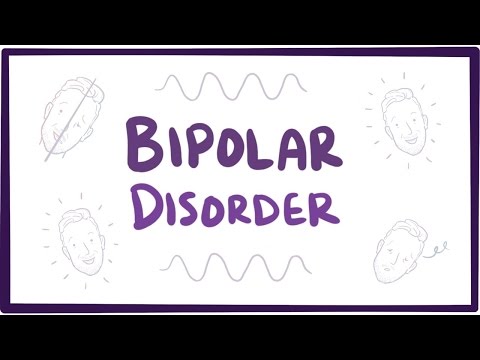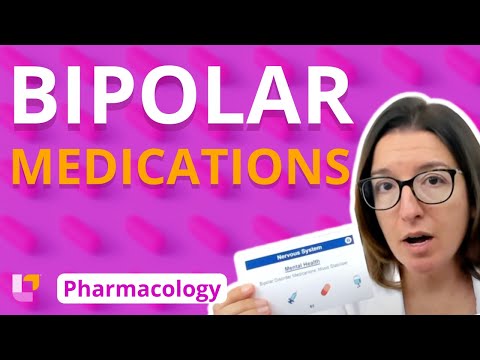
Understanding Bipolar Disorder Medications: A Lifeline for Stability
Let’s face it—bipolar disorder can disrupt your life like a heavyweight champion throwing punches when you least expect it. You got those manic highs and crashing lows, and it can feel like a rollercoaster ride that just won’t stop. That’s why bipolar disorder medications are more than just pills; they’re a lifeline. These medications help stabilize mood swings, allowing individuals to regain control and live life to the fullest.
Now, there’s a variety of bipolar disorder medications available, and understanding how they work is crucial. They mainly fall into three categories: mood stabilizers, antipsychotics, and antidepressants. Each serves a unique role in managing symptoms. For instance, mood stabilizers like lithium keep that emotional rollercoaster on a smoother track, while antipsychotics can help calm the storm during manic episodes. But remember, everyone’s journey is different—what works wonders for one person may not do the same for another.
Personalizing treatment is the name of the game. A comprehensive bipolar disorder test can clarify which medication might fit your specific needs best. Think of it as customizing your own workout regimen; it’s all about what works for you. By closely working with healthcare providers, medications can be adjusted to ensure the best outcomes, keeping you sharper than ever.

Top 7 Bipolar Disorder Medications That Transform Lives
1. Lithium (Lithobid)
Overview: Lithium has been the go-to mood stabilizer since the 1970s. This powerhouse minimizes the frequency and intensity of mood swings, allowing individuals to regain stability.
Success Stories: Celebrities like Carrie Fisher have shared how lithium significantly helped in managing their symptoms, turning their chaos into creativity. It’s a classic choice that has transformed lives for decades.
2. Lamotrigine (Lamictal)
Overview: Initially developed as an anticonvulsant, Lamotrigine has carved out its niche in treating bipolar disorder depression. It’s known for having fewer side effects than its counterparts, making it a favorite among many.
Real-Life Impact: Research indicates Lamotrigine can effectively reduce depressive episodes. Users report feeling more engaged in their daily lives, showing that this medication truly makes a difference.
3. Valproate (Depakote)
Overview: Valproate steps up when lithium isn’t doing the trick. It’s effective in managing both manic and mixed episodes, offering a safety net when stability feels out of reach.
User Experiences: Many users find that with Valproate, there’s a noticeable improvement in mood stabilization and focus. It allows them to tackle work and personal challenges with renewed energy.
4. Quetiapine (Seroquel)
Overview: Quetiapine is an atypical antipsychotic that’s a double-threat—it works for both manic and depressive episodes. It’s often a part of a broader treatment plan, acting as the security blanket you need.
Clinical Insights: Studies show that Quetiapine can reduce the frequency of manic episodes significantly. It helps provide a smoother emotional trajectory, making life feel a little more manageable.
5. Aripiprazole (Abilify)
Overview: This medication stands out for its unique mechanism as a partial agonist at dopamine and serotonin receptors. It’s great for managing manic episodes.
Patient Accounts: Many users appreciate fewer side effects compared to traditional antipsychotics. This leads to higher compliance rates, meaning people stick to their treatment and get the results they need.
6. Lurasidone (Latuda)
Overview: Another player in the atypical antipsychotic game, Lurasidone shows efficacy in treating bipolar depression. It boasts a favorable side effect profile too.
Effectiveness: Clinical trials suggest Lurasidone can improve overall functioning in patients suffering from depressive symptoms. For many, it’s about feeling satisfied and happy with life again.
7. Olanzapine (Zyprexa)
Overview: Often combined with fluoxetine (Symbyax), Olanzapine is a heavyweight for managing acute manic or mixed episodes. It acts quickly to stabilize moods.
Treatment Outcomes: Users frequently report rapid mood stabilization. This speed not only enhances engagement in therapy but also fosters better connections with support systems.

The Role of Bipolar Disorder Testing in Medication Management
Before any bipolar disorder medication is started, a thorough evaluation is key. This includes psychiatric assessments and mood charting for accurate diagnosis and tailored treatment plans. Think of it as the foundation of a solid house—you wouldn’t want to start building without that, right?
These assessments also serve as a baseline for monitoring how well medications work. By keeping an eye on what’s effective or needs adjusting, healthcare providers can ensure that every step forward is one that truly counts.

Personalized Treatment and Medication Adjustments
Each person’s experience with bipolar disorder medications is unique, and factors like genetics and lifestyle play a huge role. Regular check-ins with healthcare providers are essential, especially when it comes to medications like lithium, which requires blood tests to monitor levels.
Ongoing success isn’t just about the meds, though. Integrating therapy, lifestyle changes, and a strong support network can lift spirits and push individuals towards achieving their dreams. Don’t just stick to the basics—infuse your life with the support you need, and you’ll thrive.

Innovative Approaches to Treatment
As we adapt to new times, medical research is uncovering some cutting-edge treatments. Here’s what’s hitting the spotlight:
Recognizing the complexity of bipolar disorder is crucial. We’re all different, and that’s okay! With the ongoing evolution of treatment options, there’s hope for effective, well-rounded care that can truly transform lives. Just like hitting the gym and pushing your limits, tackling bipolar disorder requires persistence, courage, and the right tools.
So, whether you’re figuring out what type of bipolar disorder medication fits you or seeking community support to amplify your progress, stay strong. You’ve got what it takes to conquer those ups and downs, and remember—you’re not alone on this journey. Embrace the fight, because every step you take is one closer to the life you deserve.
Bipolar Disorder Medications That Transform Lives
The Basics of Bipolar Disorder Medications
Bipolar disorder medications play a pivotal role in managing mood swings and stabilizing emotions for those affected by the condition. Common classes of these medications include mood stabilizers, antipsychotics, and antidepressants, each working differently to help individuals maintain regularity in their mood cycles. Interestingly, the development and use of these medications have a significant impact on daily life, much like how Amy Robach And Tj holmes have affected media personalities with their personal journeys. You might wonder how these medications influence real-life stories and struggles, which is essential to acknowledge.
Fun Facts About Bipolar Disorder Medications
Did you know that some medications can take weeks to show effects, requiring patients to stay patient while adjusting their dosages? Imagine waiting and hoping for that stabilization, similar to how one might look for solutions on How To soothe a sore throat after a long day of yelling! Moreover, the combination of medications can lead to unique treatment plans; some may even discover the perfect mix that works for them. It’s this individual journey that creates a vibrant tapestry of experiences, echoing the way people passionately follow stars like Lauren Hashian or engage in quirky trends such as gooning for fun.
The Impact and Future of Medications
As we delve deeper into the world of bipolar disorder medications, it’s worth noting that ongoing research continues to unveil new treatment options. For instance, exciting breakthroughs often feel as nostalgic as reminiscing about a fever temp you once had as a kid! These advancements not only improve patient outcomes but also reshape perceptions about mental health. Just like various super Supplements can boost physical health, these medications can truly uplift one’s overall well-being. Ultimately, it’s about embracing a supportive environment while navigating these life-changing choices.



























